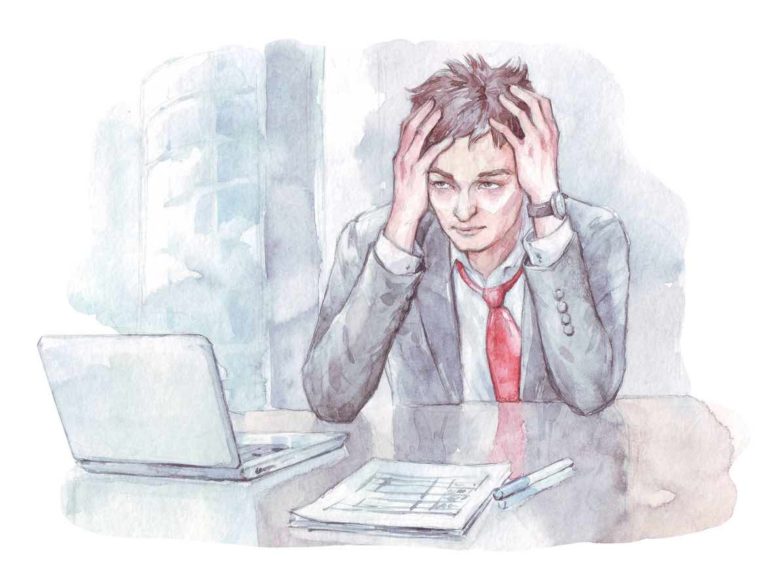Emotional Distress Damages in DOL Whistleblower Retaliation Cases
At the various stages of a whistleblower retaliation case, the DOL employs a variety of factors to determine emotional distress damages. Generally, a plaintiff seeking emotional distress damages must demonstrate:
- objective manifestations of the distress, and
- a causal connection between the adverse employment action and the distress. Directive CPL 02-03-007, OSHA Whistleblower Investigations Manual, at 6-6.
Objective manifestations of emotional distress can include:
- depression;
- post-traumatic stress disorder;
- anxiety disorders;
- sleeplessness;
- harm to relationships;
- and reduced self-esteem. Id.
At the OSHA investigation stage of a case, DOL guidance states that investigators should seek guidance from supervisors and the Regional Office of the Solicitor (RSOL) when assessing emotional distress damages, and investigators should consider the following factors:
- The severity of the distress
Where the emotional distress manifests itself physically, more serious physical manifestations will result in a higher award. More serious effects on relationships with spouse and family and/or a serious impact on other social relationships are indicative of higher awards for emotional distress.
- Degradation and humiliation
Where a respondent has humiliated and/or degraded the complainant, courts have held that conclusory evidence of emotional distress may suffice to support an award.
- Length of time out of work
Long periods of unemployment following a discriminatory adverse employment action can contribute to a complainant’s mental distress. Where the adverse action has resulted in the complainant being out of work for an extended period of time, they may receive a higher amount, especially where extended unemployment has resulted in the complainant being unable to support their own and their family’s financial needs.
- Comparison with other cases
The ARB and courts have held that when determining compensatory and emotional distress damages, a comparison of the facts of the case with similar cases may be appropriate. Emotional distress damages may be assessed based on awards given in prior, similar cases.
Id. at 6-7.
At a hearing on the merits, a DOL ALJ will consider the following factors when determining emotional distress damages:
- Circumstances of the case
An ALJ will assess the particular facts of a case when determining an award. This can include the nature of the adverse action and the emotional harm to the plaintiff, often expressed through the plaintiff’s testimony. The ALJ may measure whether the severity of the adverse action justifies the harm the plaintiff has alleged. Thomas v. Arizona Public Service Co., 89- ERA-19 (Sec’y Sept. 17, 1993); Hobson v. Wilson, 737 F.2d 1, 61-62 and n.173 (D.C. Cir. 1984), cert. denied, 470 U.S. 1084 (1985).
- Testimony about physical and mental effects
The ALJ will consider testimony about the physical and mental effects of emotional distress on the complainant. Although medical or psychiatric expert testimony is not necessary, it can strengthen a case and may result in a higher award. Thomas, 89- ERA-19 (Sec’y Sept. 17, 1993); Mosbaugh v. Georgia Power Co., 91-ERA-1 and 11, slip op. at 18 (Sec’y Nov. 20, 1995).
- Subjective and objective harm
Although an ALJ will use a plaintiff’s testimony about emotional distress when assessing damages, this testimony alone likely will not support an award. The harm must be subjective and objective, and a plaintiff’s testimony mostly speaks to subjective harm. Where a plaintiff testifies that the adverse employment action caused loss, stress, and guilt but they sought no medical help nor present any other evidence to support these claims, this would likely not result in an award. See Pierce v. United States Enrichment Corp., ARB Nos. 06-055, -058, -119, ALJ No. 2004-ERA-1 (ARB Aug. 29, 2008).
- Causation
A plaintiff must prove that the adverse employment action actually caused the emotional harm. A plaintiff may prove causation through their own testimony, expert testimony, and other evidence. Crow v. Noble Roman’s, Inc., 95-CAA-8 (Sec’y Feb. 26, 1996).
- Common sense of the situation
When assessing conflicting evidence as to whether the adverse action caused various alleged harms, an ALJ may rely on the common sense of the situation. This may include viewing medical or other evidence in conjunction with the sequence of events of the case. See Opthof v. Ashland Chemical Co., 94-CAA-7, slip op. at 34 (ALJ May 8, 1995).
- Comparison with other cases
An ALJ will compare a plaintiff’s demand for emotional distress damages with those emotional distress awards given in other, similar cases. Where an emotional distress award is excessively high compared with other cases, an ALJ may reduce the award. See Crow, 95-CAA-8 (Sec’y Feb. 26, 1996); Van Der Meer v. Western Kentucky University, 95-ERA-38 (ARB Apr. 20, 1998).
- Long-term effects
Where an adverse action has had long-term effects on a plaintiff’s mental health and/or professional reputation, an ALJ may decide on a higher award. See Van Der Meer, 95-ERA-38; DeFord v. Tennessee Valley Authority, 81-ERA-1 (Sec’y Aug. 16, 1984).
Whistleblower Retaliation Damages and Remedies
Whistleblower Retaliation Resources
What Laws Protect Whistleblowers From Retaliation?
Sarbanes-Oxley Whistleblower Protection: Robust Protection for Corporate Whistleblowers
What is whistleblower retaliation?
How can a whistleblower prove retaliation?
Whistleblower Retaliation Lawyers
If you have suffered retaliation for whistleblowing, call our whistleblower lawyers at 202-262-8959 or contact us via our website.









